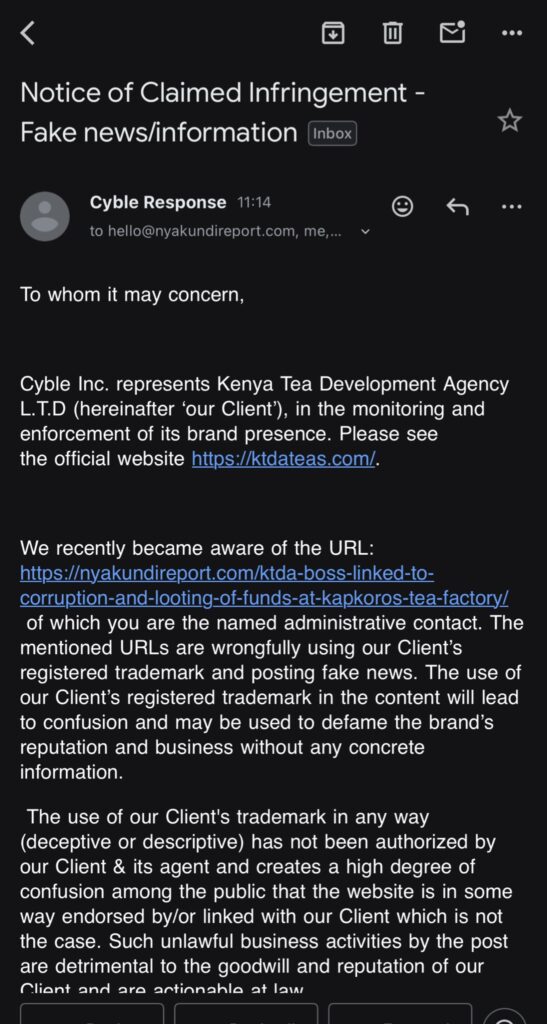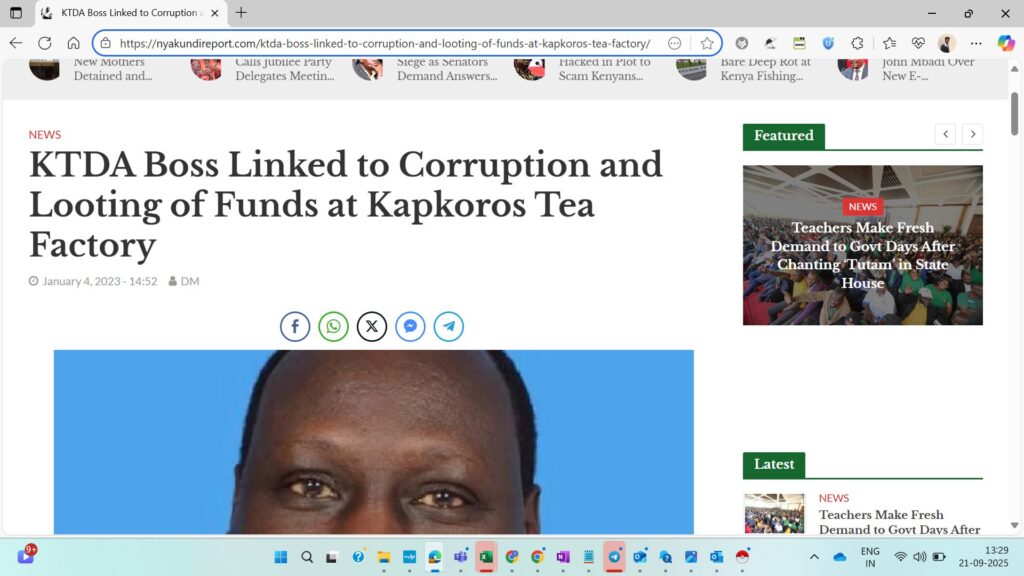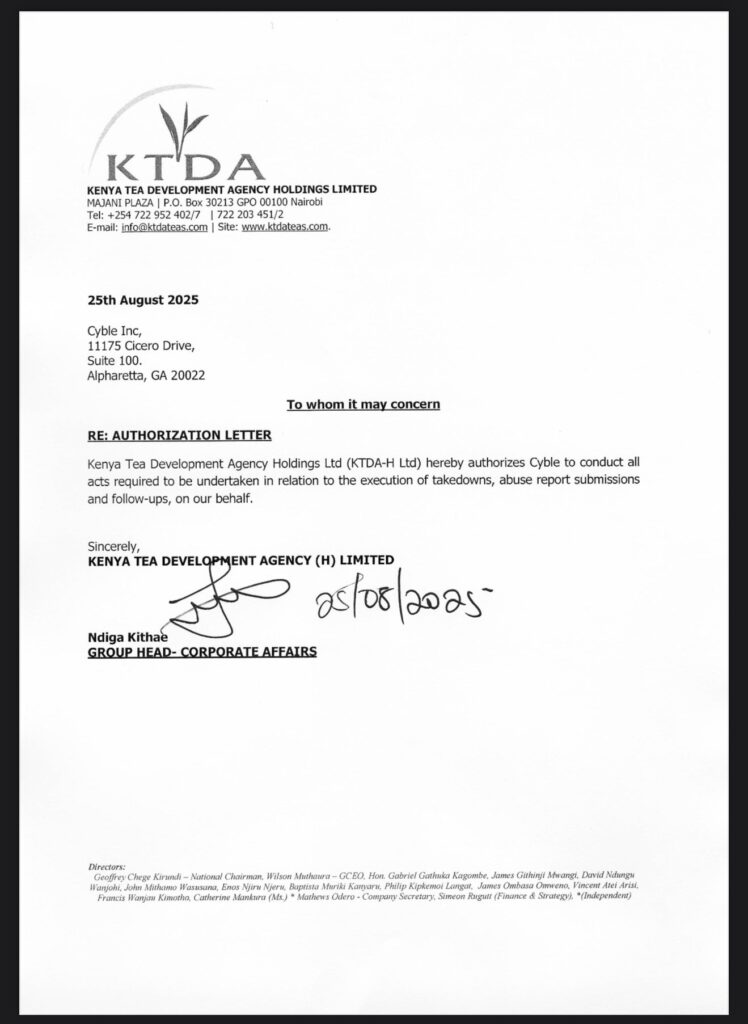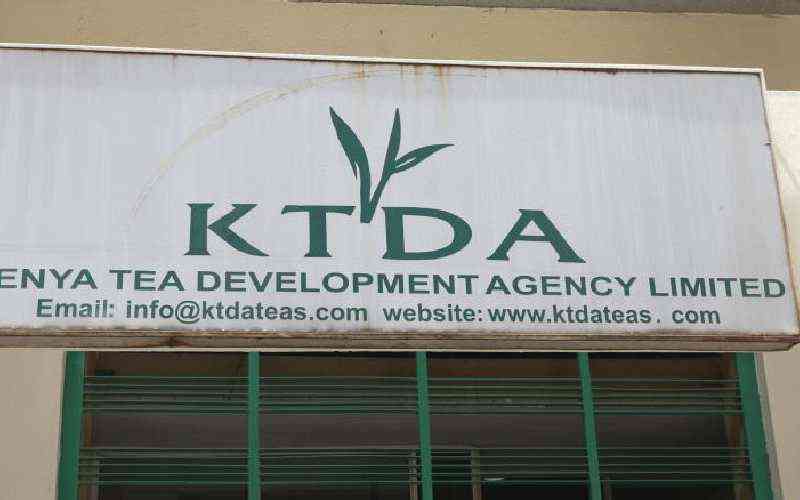For years, tea farmers in Kenya have carried the heavy burden of corruption, mismanagement, and exploitation within the Kenya Tea Development Agency, yet instead of fixing its mess, the agency now seems determined to silence those who speak out.
The latest attempt came when KTDA moved to take down an article by Cyprian Nyakundi, a blogger known for exposing graft and shady dealings.

The agency claimed the piece was fake news and that it infringed on trademarks, but Nyakundi was quick to dismiss the move as nothing more than an attempt to censor and protect those who have been looting from farmers.
He reminded KTDA that it is not a private kingdom but a public institution owned by farmers, and therefore open to scrutiny.
His response went further, insisting that courts protect reporting on public matters and warning against the misuse of intellectual property laws to silence criticism.

Instead of running to lawyers and hiding behind threats, Nyakundi challenged KTDA to come out in the open with facts and evidence if it truly believes it has nothing to hide.
The truth, however, is that KTDA has long been entangled in a web of corruption that has left farmers poor and hopeless.
Over the past few years, audits have unearthed massive fraud, ranging from misappropriated funds to inflated land purchases and even theft at the factory level.
In August 2025, KTDA was forced to suspend top managers at Chai Trading after corruption and mismanagement claims, and detectives soon uncovered massive looting that placed senior officials at the center of economic crime charges. This was not an isolated case.
Just months earlier, a Tea Board of Kenya audit revealed irregularities worth 35 million shillings, adding to earlier findings that farmers had lost more than 600 million shillings in dubious KTDA deals.
Auditors called for thorough probes into directors and management, but little has changed on the ground, as cartels, compromised brokers, and rogue officials continue to profit at the expense of smallholders.
Even worse, some of the corruption was petty but cruel. Farmers in the South Rift were defrauded by clerks who tampered with weighing scales, stealing from them directly despite the installation of anti-tampering gadgets.

At the leadership level, former KTDA bosses have been accused of blocking reforms to maintain control, while politicians have used the agency as a playground for power struggles.
In some regions, high-quality tea was blended with low-grade produce to create room for brokers to pocket extra cash, leaving factories with unsold stock and farmers with no buyers.
Many ended up uprooting their tea bushes because the low payments could no longer sustain their families.Instead of addressing these issues head-on, KTDA is now busy fighting journalists who expose the rot.
The agency’s move against Nyakundi is not about protecting trademarks but about silencing uncomfortable truths.
By trying to hide behind legal shields, KTDA is only confirming what farmers already know that corruption is so deep inside the system that those in power would rather fight the messenger than confront the message.
Public anger has grown because billions meant for farmers have been wasted on overpaid lawyers, inflated land deals, rogue procurement, and endless boardroom wars.
Even President Ruto has in the past called for e-procurement to cut out corruption, yet the rot continues.
Nyakundi’s vow to keep publishing stories on KTDA’s failures is a clear warning that the agency cannot bury the truth forever. Farmers have the right to know how their money is managed and why, despite producing some of the best tea in the world, they remain stuck in poverty.
KTDA cannot run away from accountability by chasing reporters; the only way forward is transparency, honesty, and reforms that place farmers before cartels. Anything less will only deepen the mistrust and anger already boiling in Kenya’s tea-growing regions.





















Add Comment